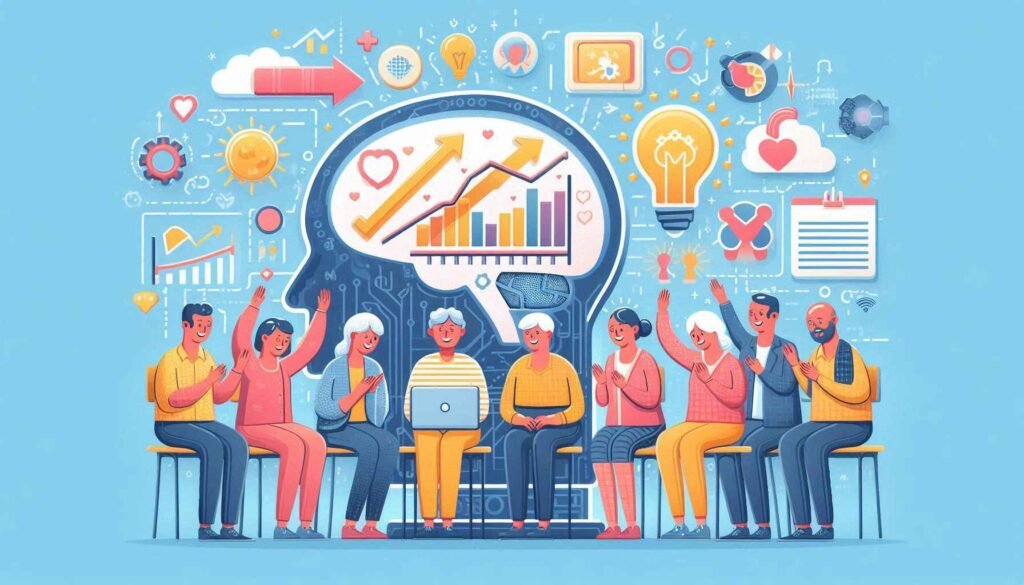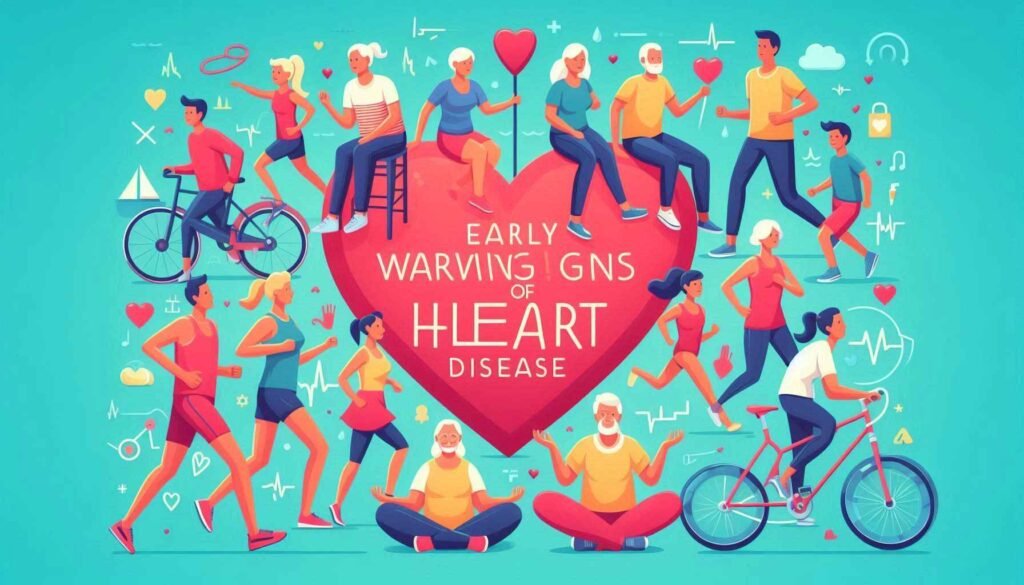
The Benefits of Social Engagement in Preventing Cognitive Decline
As we age, preserving cognitive function becomes increasingly important. While many of us are aware of the importance of regular exercise, a balanced diet, and mentally stimulating activities, social engagement is often overlooked. Yet, social interaction is one of the most powerful tools for maintaining mental sharpness and preventing cognitive decline. Studies have shown that staying socially active can significantly reduce the risk of conditions such as Alzheimer’s and other forms of dementia.
In this post, we’ll dive deep into the science of social engagement, why it’s essential for cognitive health, and practical ways to incorporate more social interaction into your daily routine.
Understanding Cognitive Decline: A Growing Concern
Cognitive decline refers to the gradual reduction in cognitive abilities such as memory, thinking, and reasoning. As we age, it’s natural to experience some decline in cognitive function, but in some cases, it can progress to more severe conditions like dementia. According to recent data, more than 55 million people globally are living with dementia, and this number is expected to rise dramatically in the coming years.
The good news is that there are ways to slow or prevent cognitive decline. Along with physical and mental exercises, social engagement has emerged as a key factor in maintaining cognitive health as we age.
What Is Social Engagement?
Social engagement refers to the participation in activities and interactions that involve others. It includes a wide range of activities, from spending time with family and friends to participating in group activities, volunteering, or even casual conversations with neighbors. The idea is to stay mentally and emotionally stimulated by connecting with others.
Our brains thrive on these social connections. The human brain is wired to engage with others—whether through face-to-face conversations, phone calls, or even virtual interactions. When we socialize, multiple areas of the brain are activated, particularly those involved in memory, emotional regulation, language processing, and problem-solving.
The Science Behind Social Engagement and Cognitive Health
Numerous studies have demonstrated the link between social engagement and cognitive health. In one significant study by Harvard University, researchers found that older adults who maintained strong social networks experienced slower rates of cognitive decline. These individuals were less likely to develop dementia compared to their more socially isolated peers.
But why does social engagement have such a profound impact on the brain?
1. Social Interaction Stimulates the Brain
When we engage in social activities, our brain is forced to process multiple types of information simultaneously—interpreting emotions, responding to social cues, recalling past experiences, and generating responses. These complex mental exercises help keep neural pathways active and strong, much like how physical exercise keeps muscles toned.
2. Social Engagement Helps Reduce Stress
Another benefit of social interaction is its ability to lower stress levels. Social support, whether through family, friends, or community groups, plays a significant role in managing life’s challenges. Stress, especially chronic stress, can have devastating effects on the brain, particularly in areas related to memory and learning, like the hippocampus.
By staying socially connected, individuals are better equipped to manage stress and anxiety, which in turn, helps protect the brain from cognitive decline.
3. Social Connections Promote Emotional Well-being
Mental health and cognitive health are closely intertwined. Socially isolated individuals are more likely to experience depression, anxiety, and feelings of loneliness. These mental health challenges contribute to the decline in cognitive abilities. In contrast, individuals who maintain strong social connections tend to have better emotional well-being, which plays a vital role in keeping the brain healthy.
The Risks of Social Isolation and Loneliness
On the other hand, loneliness and social isolation have been identified as major risk factors for cognitive decline. Social isolation, in particular, has been linked to an increased risk of neurodegenerative diseases. According to the World Health Organization, social isolation is associated with a 50% increased risk of developing dementia.
During the COVID-19 pandemic, many older adults experienced increased social isolation due to restrictions on gatherings and physical distancing. This isolation had a profound impact on their cognitive and emotional well-being, highlighting the importance of maintaining social ties, even in challenging circumstances.
Why Isolation Is So Dangerous
Social isolation deprives the brain of stimulation, leading to a reduction in neural activity. When the brain isn’t regularly challenged by interactions, it can start to weaken. Over time, this lack of stimulation can lead to shrinkage in areas of the brain that are essential for memory and cognitive processing.
In addition, socially isolated individuals often experience higher levels of stress and depression, which further accelerates cognitive decline. Chronic loneliness can even lead to physical health issues, such as cardiovascular disease and weakened immune function, both of which are also linked to an increased risk of dementia.
Types of Social Engagement That Benefit Cognitive Health
Not all social interactions are created equal. While any form of socializing can provide some benefit, meaningful and mentally stimulating interactions are the most effective in promoting cognitive health. Here are some of the best types of social engagement:
1. Group Exercise Classes
Physical exercise is critical for brain health, but when combined with social engagement, it becomes even more powerful. Group activities like yoga, Tai Chi, or walking groups provide an opportunity to exercise while engaging with others. The social aspect encourages accountability and adds an extra layer of mental stimulation.
2. Volunteering in the Community
Volunteering offers a great way to engage socially while contributing to a cause. Whether it’s working at a local charity, participating in community projects, or mentoring others, volunteering involves problem-solving and interacting with diverse groups of people, which provides excellent mental stimulation.
3. Joining Clubs or Hobby Groups
Whether it’s a book club, gardening group, or art class, joining a hobby group allows individuals to connect with like-minded people. These groups encourage cognitive engagement through learning, discussion, and collaboration, all of which promote brain health.
4. Attending Educational Seminars and Lectures
Many community centers, libraries, and universities offer educational seminars and lectures that are open to the public. These events provide opportunities to learn new things and engage in discussions with others, stimulating brain function and promoting social interaction.
5. Socializing with Family and Friends
While formal group activities are beneficial, regular interactions with family and friends also play a critical role in maintaining cognitive health. Casual conversations, shared meals, and meaningful interactions provide the brain with the social stimulation it needs.
How to Stay Socially Engaged as You Age
As we age, maintaining social connections can become more challenging due to mobility issues, retirement, or the loss of friends and loved ones. However, there are several strategies you can use to stay socially engaged:
1. Embrace Technology
Technology has made it easier than ever to stay connected with others, even from a distance. Platforms like Zoom, FaceTime, and social media allow us to communicate with family and friends regularly. Many online communities and groups also provide opportunities to connect with others who share similar interests.
2. Get Involved in Local Community Centers
Local community centers often offer a wide range of programs for older adults, from fitness classes to art workshops. These centers provide a supportive environment to meet new people, engage in group activities, and stay active mentally and physically.
3. Volunteer Your Time
Volunteering not only benefits the community but also helps you stay socially active. Whether it’s mentoring young people or helping out at a local charity, volunteering is a great way to build meaningful social connections and stay engaged.
4. Schedule Regular Check-ins
If you live alone, it’s important to stay in touch with family and friends. Make it a habit to schedule regular check-ins, whether through phone calls, video chats, or in-person meetups. Maintaining these connections can provide valuable emotional support and help keep your mind sharp.
The Role of Purpose in Cognitive Health
Social engagement doesn’t just stimulate the brain; it also gives people a sense of purpose. Having a reason to wake up every morning—whether it’s attending a class, volunteering, or meeting with friends—keeps individuals mentally active and emotionally grounded. Research shows that those with a strong sense of purpose are more likely to maintain cognitive health as they age.
A sense of purpose motivates individuals to stay engaged, which in turn keeps the brain active and healthy. It also fosters resilience, helping individuals cope with the challenges of aging and maintaining mental well-being.
Conclusion: Prioritize Social Engagement for Cognitive Health
Incorporating social engagement into your daily routine isn’t just good for emotional well-being—it’s essential for cognitive health. Whether through group activities, volunteering, or regular interactions with family and friends, the key is to stay engaged, connected, and purposeful.
By making social interaction a priority, you can reduce the risk of cognitive decline and enjoy a more fulfilling, connected life. Start today—your brain will thank you for it!



